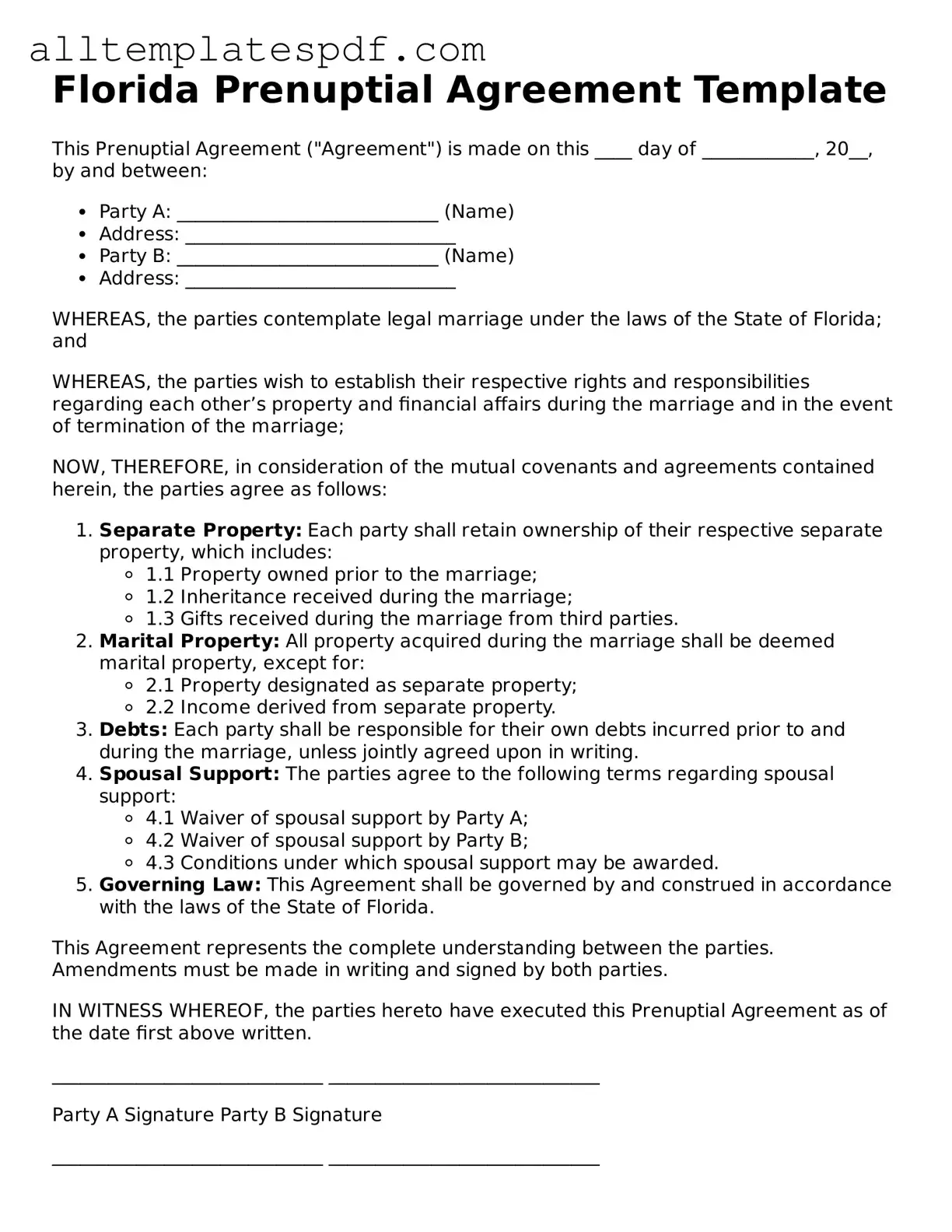Blank Prenuptial Agreement Template for the State of Florida
A Florida Prenuptial Agreement form is a legal document that outlines the distribution of assets and responsibilities between partners in the event of a divorce or separation. This form serves to protect individual interests and clarify financial arrangements before marriage. To ensure your rights are safeguarded, consider filling out the form by clicking the button below.
Open Editor

Blank Prenuptial Agreement Template for the State of Florida
Open Editor
Fast and easy form completion
Complete Prenuptial Agreement digitally — fast and easy.
Open Editor
or
↓ Prenuptial Agreement PDF Form
